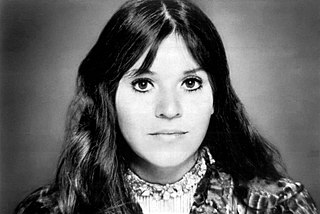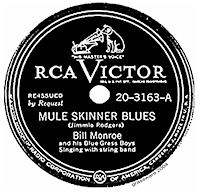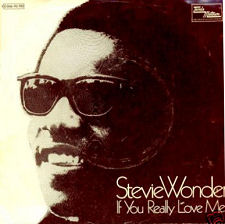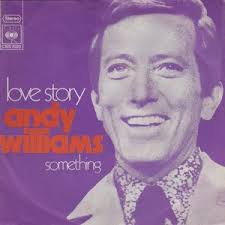Related Research Articles
Space rock is a genre characterized by loose and lengthy song structures centered on instrumental textures that typically produce a hypnotic, otherworldly sound. It may feature distorted and reverberation-laden guitars, minimal drumming, languid vocals, synthesizers and lyrical themes of outer space and science fiction.

Bernard John Taupin is an English lyricist, poet, singer and artist. He is best known for his long-term collaboration with Elton John, having written the lyrics for most of John's songs.

"The Night They Drove Old Dixie Down" is a song written by Robbie Robertson and originally recorded by the Canadian-American roots rock group The Band in 1969 and released on their eponymous second album. Levon Helm provided the lead vocals. The song is a first-person narrative relating the economic and social distress experienced by the protagonist, a poor white Southerner, during the last year of the American Civil War, when George Stoneman was raiding southwest Virginia. The song appeared at number 245 on Rolling Stone magazine's list of the 500 greatest songs of all time.

Melanie Anne Safka-Schekeryk, professionally known as Melanie or Melanie Safka, is an American singer-songwriter. She is best known for the 1971-72 global hit "Brand New Key", her cover of "Ruby Tuesday", her composition "What Have They Done to My Song Ma", and her 1970 international breakthrough hit "Lay Down ".

"You've Got a Friend" is a 1971 song written by Carole King. It was first recorded by King and included in her album Tapestry. Another well-known version is by James Taylor from his album Mud Slide Slim and the Blue Horizon. His was released as a single in 1971 reaching number 1 on the Billboard Hot 100 and number 4 on the UK Singles Chart. The two versions were recorded simultaneously in 1971 with shared musicians.

"Brown Sugar" is a song by the Rolling Stones. It is the opening track and lead single from their album Sticky Fingers (1971). Rolling Stone magazine ranked it number 495 on its list of the 500 Greatest Songs of All Time and at number five on their list of the 100 Greatest Guitar Songs of All Time.

"Joy to the World" is a song written by Hoyt Axton and made famous by the band Three Dog Night. The song is also popularly known by its opening lyric, "Jeremiah was a bullfrog." Three Dog Night originally released the song on their fourth studio album, Naturally, in November 1970, and subsequently released an edited version of the song as a single in February 1971.

"Ain't No Sunshine" is a song by Bill Withers from his 1971 album Just As I Am, produced by Booker T. Jones. The record featured musicians Donald "Duck" Dunn on bass guitar, Al Jackson Jr. on drums and Stephen Stills on guitar. String arrangements were done by Booker T. Jones. The song was recorded in Memphis by engineer Terry Manning. The song is in the key of A minor.
"Buttons and Bows" is a popular song with music written by Jay Livingston and lyrics by Ray Evans. The song was published in 1947. The song was written for and appeared in the Bob Hope and Jane Russell film The Paleface and won the Academy Award for Best Original Song. It was originally written with an Indian theme, but was changed when the director said that would not work in the movie. It was a vocal selection on many radio programs in late 1948. It was reprised in the sequel, Son of Paleface, by Roy Rogers, Jane Russell and Bob Hope. In 2004 it finished #87 in AFI's 100 Years...100 Songs survey of the top tunes in American cinema.

"Proud Mary" is a rock ’n’ roll song written by John Fogerty and first recorded by his band Creedence Clearwater Revival. It was released by Fantasy Records as a single from the band's second studio album, Bayou Country, which was issued by the same record company in January 1969. The single is generally considered to have been released in early January 1969, although at least one source states that it came out just before Christmas 1968. The song became a major hit in the United States, peaking at No. 2 on the Billboard Hot 100 in March 1969, the first of five singles to peak at No. 2 for the group.

"Mule Skinner Blues" is a classic country song written by Jimmie Rodgers and George Vaughan. The song was first recorded by Rodgers in 1930 and has been recorded by many artists since then, acquiring the de facto title "Mule Skinner Blues" after Rodgers named it "Blue Yodel #8".

"If You Really Love Me" is a song written by Stevie Wonder and Syreeta Wright. Wonder recorded the song and released his version as a single from his 1971 album Where I'm Coming From. The single peaked in the top 10 of the Billboard Hot 100, Billboard′s R&B chart, and Billboard′s Easy Listening chart.

"The Battle of New Orleans" is a song written by Jimmy Driftwood. The song describes the Battle of New Orleans from the perspective of an American soldier; the song tells the tale of the battle with a light tone and provides a rather comical version of what actually happened at the battle. It has been recorded by many artists, but the singer most often associated with this song is Johnny Horton. His version scored number 1 on the Billboard Hot 100 in 1959. Billboard ranked it as the No. 1 song for 1959, it was very popular with teenagers in the late 50s/early 60s in an era mostly dominated by rock and roll music.

"The Pusher" is a rock song written by Hoyt Axton, made popular by the 1969 movie Easy Rider which used Steppenwolf's version to accompany the opening scenes showing drug trafficking.
"Superstar" is a 1969 song written by Bonnie Bramlett and Leon Russell with a songwriting credit also given to Delaney Bramlett that has been a hit for many artists in different genres and interpretations in the years since; the best-known versions are by the Carpenters in 1971, and by Luther Vandross in 1983.

"(Where Do I Begin?) Love Story" is a popular song published in 1970, with music by Francis Lai and lyrics by Carl Sigman. The song was first introduced as an instrumental theme in the 1970 film Love Story after the film's distributor, Paramount Pictures, rejected the first set of lyrics that were written. Andy Williams eventually recorded the new lyrics and took the song to number nine on Billboard magazine's Hot 100 and number one on their Easy Listening chart.
"You Ain't Goin' Nowhere" is a song written by Bob Dylan in 1967 in Woodstock, New York, during the self-imposed exile from public appearances that followed his July 29, 1966 motorcycle accident. A recording of Dylan performing the song in September 1971 was released on the Bob Dylan's Greatest Hits Vol. II album in November of that year, marking the first official release of the song by its author. Earlier 1967 recordings of the song, performed by Dylan and the Band, were issued on the 1975 album The Basement Tapes and the 2014 album The Bootleg Series Vol. 11: The Basement Tapes Complete.

"What the World Needs Now Is Love" is a 1965 popular song with lyrics by Hal David and music composed by Burt Bacharach. First recorded and made popular by Jackie DeShannon, it was released on April 15, 1965, on the Imperial label after a release on sister label Liberty records the previous month was canceled. It peaked at number seven on the US Hot 100 in July of that year. In Canada, the song reached number one.

"Imagine" is a song by English rock musician John Lennon from his 1971 album of the same name. The best-selling single of his solo career, its lyrics encourage listeners to imagine a world at peace without the barriers of borders or the divisions of religion and nationality and to consider the possibility that the whole of humanity would live unattached to material possessions. Shortly before his death, Lennon said that much of the song's lyrics and content came from his wife, Yoko Ono, and in 2017 she received co-writing credit.
"I Got Ants in My Pants " is a funk song by James Brown. Recorded in 1971 and released as a two-part single in November 1972 or January 1973, it charted #4 R&B and #27 Pop. It did not receive an album release. A remixed version was included on the 1988 compilation album Motherlode, Part 1 to Star Time and the whole cut again in Make It Funky: The Big Payback.
References
- ↑ White, Cliff (1991). "Discography". In Star Time (pp. 54–59) [CD booklet]. New York: PolyGram Records.